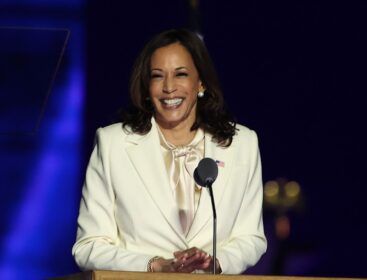Supreme Court Overturns Landmark Chevron Decision, Shifts Power from Federal Agencies
The Supreme Court’s ruling to overturn the 1984 Chevron decision redefines regulatory authority, delivering a significant victory to business interests and reshaping federal agency powers.
Washington, Bollywood Fever: The Supreme Court has overturned a pivotal 40-year-old decision, fundamentally changing how the federal government regulates the environment, public health, workplace safety, and consumer protections. This landmark ruling delivers a potentially lucrative victory to business interests by dismantling the 1984 Chevron decision.
The court’s six conservative justices unanimously overturned the Chevron precedent, which had long been targeted by conservatives aiming to reduce regulatory power. This ruling is seen as the clearest and boldest move by the conservative-majority court to curtail what critics call the “administrative state.” The liberal justices dissented.
Billions of dollars are potentially at stake following this decision, which the Biden administration’s top Supreme Court lawyer warned would be an “unwarranted shock to the legal system.” The Chevron doctrine allowed federal agencies to fill in details when laws were unclear, a practice that opponents argued gave too much power to government experts over judges.
“Courts must exercise their independent judgment in deciding whether an agency has acted within its statutory authority,” Chief Justice John Roberts wrote for the court. He assured that this decision does not question prior cases relying on Chevron, but Justice Elena Kagan’s dissent suggested otherwise, calling it a significant rollback of agency authority despite congressional direction.
The ruling emerged from cases involving Atlantic herring fishermen in New Jersey and Rhode Island, who challenged a 2020 National Marine Fisheries Service rule requiring them to pay for government-mandated observers. Lower courts had upheld the rule using the Chevron decision.
Conservative and business interests backed the fishermen, hoping the court, reshaped under former President Donald Trump, would weaken the regulatory state. This conservative majority has previously reined in environmental regulations and halted initiatives like COVID-19 vaccines and student loan forgiveness under the Biden administration.

The Supreme Court’s skepticism of federal agency powers has grown, with Justices Samuel Alito, Neil Gorsuch, Brett Kavanaugh, and Clarence Thomas questioning Chevron. They were joined in the majority by Justice Amy Coney Barrett.
Roberts’ opinion directly countered Justice John Paul Stevens’ 1984 rationale that judges should defer to agency experts. Roberts cited the Marbury v. Madison decision to emphasize that legal interpretation is the judiciary’s domain.
Kagan, joined by Justices Ketanji Brown Jackson and Sonia Sotomayor, argued that removing Chevron gives courts control over matters outside their expertise. She highlighted the risks of shifting power from agencies to courts.
Opponents of Chevron contended it allowed judges to too frequently rubber-stamp bureaucratic decisions. The court’s ruling now requires judges to exercise independent authority in legal interpretations.
Bill Bright, a fisherman from Cape May, New Jersey, involved in the lawsuit, welcomed the decision, stating it would help protect the livelihoods of fishing families.
White House press secretary Karine Jean-Pierre criticized the ruling as a step backward, influenced by Republican-backed special interests aiming to block common-sense regulations that safeguard health, the environment, and consumer rights.
Federal agencies and the Justice Department had already begun reducing reliance on Chevron in crafting new regulations. Environmental, health advocacy groups, civil rights organizations, organized labor, and Democrats had urged the court to maintain Chevron.
Sambhav Sankar, a lawyer with Earthjustice, warned that the ruling undermines the regulatory foundations essential for public protection, potentially threatening the legitimacy of numerous safety and environmental regulations.
The Supreme Court’s decision marks a significant shift in regulatory authority, with widespread implications for federal agency powers and business regulations.
Also Read, Steve Bannon Ordered to Report to Prison After Supreme Court Rejects Appeal
Pennsylvania Duo Charged with Homicide After Newborn’s Tragic Death
Iowa Woman Charged with Second-Degree Murder of Minnesota DJ Liara Tsai












